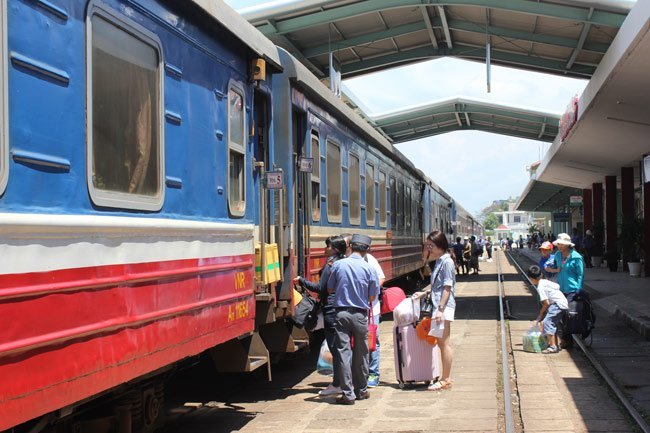
The North-South railway is now outdated and its speed is quite slow, so the development of the cross-country express railway is of great importance
In a statement released by the Government Office, Deputy PM Dung said that the North-South transport corridor plays a critical role in Vietnam’s economic development, security and defense. It links the capital city of Hanoi with the economic hub of HCMC, while traveling through some 20 provinces and cities, making up 61% of the nation’s gross domestic product.
The large-scale railway project requires significant funding and involves sophisticated technologies. Since the railway is expected to run through many localities, it also requires large stretches of land.
“The preparatory process for the investment in the project should be taken into prudent and careful consideration to reach a strong consensus among the National Assembly, the Government and the general public,” the statement pointed out.
The Ministry of Transport has worked with consultants, experts and scientists on the prefeasibility study for the big-ticket project, but there remain disagreements on its investment plan, especially the division of investment phases.
Therefore, Deputy PM Dung asked the State Appraisal Council to consider the necessity of the project and its benefits to the country in terms of the economy, politics, culture, society, the environment, security and defense.
The council should also assess the affordability of the project, considering Vietnam also needs to invest in other major transport infrastructure projects until 2030.
The Ministry of Transport was told to canvass extra feedback from experts, organizations and the public and to learn from the experiences of other countries that have built or have plans for express railways.
In February this year, the ministry sent the prime minister the prefeasibility study for the railway project, which costs an estimated US$58.71 billion and is divided into two stages, with the first requiring US$24.71 billion. State funds are expected to make up some 80%, while the remainder is from the private sector.
The first phase includes a 282-kilometer section between Hanoi and Vinh City of northern Nghe An Province and a 362-kilometer section from the south-central beach city of Nha Trang to HCMC. They are due to be finished by 2030.
In the second phase, work on the remaining Vinh-Nha Trang section, which is some 900 kilometers long, will start later, so that the entire expressway can be put into service by 2050.
At a maximum speed of 320 kilometers per hour, rail travel between Hanoi and HCMC will take five hours and 20 minutes, excluding stopovers at certain stations, and six hours and 55 minutes if stopovers at all stations are included. SGT